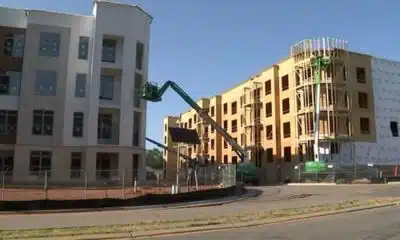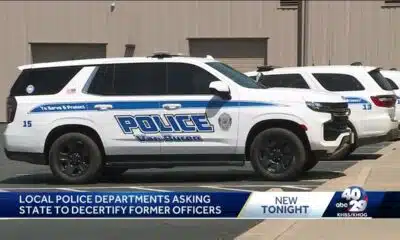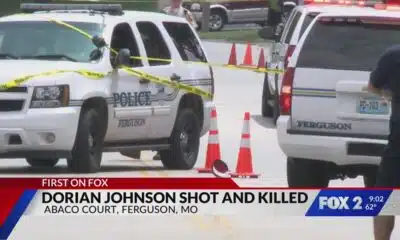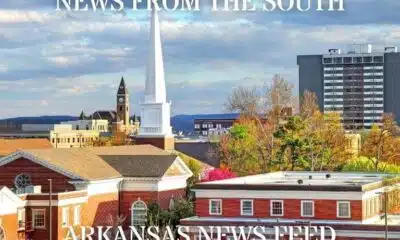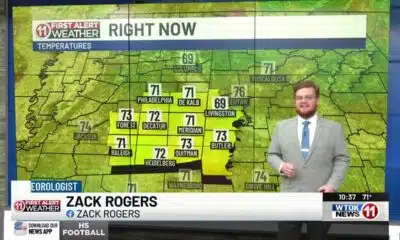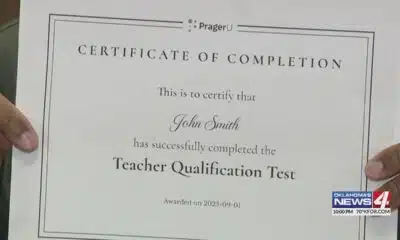News from the South - West Virginia News Feed
Federal officials call miners’ health a ‘priority,’ but are cutting a Pa. team studying mine safety
by Ian Karbal, West Virginia Watch
May 30, 2025
Brendan Demich was on a bus to Washington, D.C. last week to attend a rally outside the U.S. Department of Health and Human Services’ office.
At the same time, Health Secretary Robert F. Kennedy Jr. was assuring lawmakers that critical programs in his department, specifically those protecting coal miners, would continue despite drastic cuts to his agency’s staff and budget.
It was the third in a series of contentious hearings for Kennedy. And for Demich, a Pennsylvania employee of the National Institute for Occupational Safety and Health (NIOSH), a research agency in Kennedy’s department, they were hard to stomach.
He’s part of a roughly 100-person team at NIOSH’s Bruceton facility in Allegheny County that studies the best ways to prevent injuries, illnesses and death in coal mines. Last month, he and all of his colleagues were notified that their jobs would be eliminated in June. Another team in Spokane, Washington, focused on safety in non-coal mines received similar notices.
Combined, they conduct the bulk of the agency’s mine safety research.
“[Kennedy]’s claiming that he hasn’t fired any scientists, and that the only people that they’re cutting are doing duplicative work, but that is absolutely not the case,” Demich told the Capital-Star. “Our titles may be engineers, but we do science … And there’s no other agency that does the work we do here at NIOSH.”
The picture Demich paints is different from Kennedy’s.
“The work at NIOSH will not be interrupted,” Kennedy responded to a question from a lawmaker about layoffs. “The work on mine safety will continue. We understand it’s critically important to function and we don’t want to see it end.”
The hearings took place over the last three weeks after reports emerged that critical and legally required programs to help miners with black lung disease were no longer functioning, after an estimated 90% of NIOSH’s roughly 1400 full-time staff were laid off, offered early retirement or placed on administrative leave pending termination in early April.
Miners developing black lung, an irreversible and degenerative disease, were suddenly not able to get approved for a program facilitating transfers to less dusty mines. Black lung screenings that can help miners with the disease receive federal benefits were also stopped.
This led to a class action lawsuit and pressure from Republican lawmakers to reverse the layoffs of federal workers whose jobs were ensuring mine safety.
So, earlier this month, Kennedy brought back over 300 NIOSH employees, including the Morgantown, West Virginia, team that studies black lungs and ensures benefits for programs for miners who develop it continue to function.
Kennedy also restored a team focused on the health of 9/11 first responders, as well as a team that works on the same Pittsburgh campus as Demich’s that tests and certifies respirators used by miners, firefighters and other professionals.
But Demich’s division is still expecting to be laid off.
Earlier this month, at a meeting, Demich said Pittsburgh employees in the mine safety division were told they no longer had to come into work, though a handful still do.
There had been hope with the Trump administration’s rhetoric around increasing coal mining and U.S. Health Department’s statements on the importance of miner safety that the job cuts would be reversed. But when NIOSH staff in other departments were brought back, Demich said, ”it crushed morale in the mining division. A lot of people see it as writing on the wall that we’re not being saved.”
The Department of Health and Human Services did not respond to detailed questions from the Capital-Star about future plans for the mine research divisions. But a spokesperson provided a statement saying, “Secretary Kennedy has been working hard to ensure that the critical functions under NIOSH remain intact. The Trump administration is committed to supporting coal miners and firefighters, and under the Secretary’s leadership, NIOSH’s essential services will continue as HHS streamlines its operations. Ensuring the health and safety of our workforce remains a top priority for the Department.”
Demich finds HHS statements on preserving critical programs frustrating, given the cuts on his and similar teams.
“I don’t know how you can say that you’re maintaining essential services for coal workers and miners when you’re cutting the divisions that mainly do the research and provide the services to prevent mine injuries, illnesses and fatalities,” he said. “Our work does not overlap at all with the [Morgantown] division, other than that we both want to prevent black lung.”
‘Those functions are going to disappear’
There is virtually no operational mine in the United States that hasn’t implemented safety measures based on research conducted by NIOSH.
The U.S. government got into mine safety research when the Bureau of Mines was established in 1910, after a series of deadly explosions killed hundreds of miners in just a few short years. The bureau was tasked with researching safer practices, inspecting mines and collecting data on the industry.
The work was successful. For decades, miner fatality rates steadily and precipitously decreased. That continued after the Bureau of Mines was shuttered and effectively rolled into the Department of Health and Human Services in the 1990s, where it now sits.
NIOSH’s mine safety divisions don’t set or enforce rules, but research it conducts has led to breakthroughs in technology that detects coal dust levels in real time, prevents mine roofs from collapsing, increases mineshaft ventilation and provides barriers between miners and powerful explosions.
“Those functions are going to disappear and I’m not quite sure who else would be able to do those,” said Tony Iannacchione, a former employee of NIOSH’s coal mine safety team who now teaches at the University of Pittsburgh’s Swanson School of Engineering. “There’s some pretty unique expertise. And if you don’t have a government agency that’s keeping its thumb on the pulse and coming up with modifications and improvements to the systems being used in mines, we’re gonna be in a bad way.”
Iannacchione says that work is only getting more important. The more coal that’s extracted, the deeper miners have to dig to find it. That makes for more dangerous mines and requires new research and safety protocols.
“As you go deeper, you get higher concentrations of methane gas and all these problems just get worse,” he said. “For the industry to react to all these problems, it’s really beyond their capability. You need the government involved.”
Iannacchione cited recent NIOSH research that set new industry standards for blast walls that are placed between miners and explosives, as well as new methods for placing roof supports. The Pittsburgh team has also done extensive work on preventing hearing loss, which is an issue in underground mines that are full of loud machinery.
The coal mine safety team in Pittsburgh is also developing technology that can read silica dust levels in real time, but that has yet to be deployed. As miners dig into tougher terrain, they’re exposed to much more silica dust, which has led to an increase in the development of silicosis and black lung among younger miners and develops at an accelerated rate. Widespread use of real time monitors, Iannacchione said, could save lives. But it’s unclear if the work will be finished by the time the layoffs fully take effect in June.
Demich, the chief steward of the union representing Pittsburgh-area NIOSH workers, said he was working on a virtual reality training program for first responders and rescue teams to simulate mine disasters. They had begun training teams around the country, but the cuts effectively ended that work. He believes, with a little more time, they could have brought it to almost every mine rescue team in the U.S.
‘Benefit of the doubt’
Sam Petsonk has been an advocate for coal miners for his entire career. The West Virginia-based lawyer led the recent lawsuit against the Department of Health and Human Services that resulted in an injunction ruling last week, effectively requiring the return of NIOSH workers running Black Lung programs in Morgantown.
He successfully argued that the department was breaking the law by effectively shuttering congressionally-approved programs for miners with black lung by laying off the staff that implemented them. But, as he sees it, the law also requires the kind of research done by NIOSH’s teams that are still facing layoffs.
“These Pittsburgh programs are every bit as mandatory under the Mine Act,” Petsonk told the Capital-Star. “I would like to give Secretary Kennedy a bit of the benefit of the doubt here that he’s still digesting his obligations here.”
But the mandate is far less clear, with statute generally requiring NIOSH to conduct “research, demonstrations, and experiments” to support the Department of Labor’s Mine Safety and Health Administration, which sets and enforces rules for mine companies to follow.
The injunction ruling from U.S. District Court Judge Irene Berger focused on the availability of black lung programs, but also said “the Court orders that there be no pause, stoppage or gap in the protections and services mandated by Congress in the Mine Act and the attendant regulations for the health and safety of miners.”
Asked if he would bring a lawsuit if the mine safety research teams are not brought back, Petsonk said he wants to wait until the end of the 20-day period that Berger allowed to comply with the injunction. That will be on June 2.
“If they look at it, they will see the need to revive the mining research labs within NIOSH,” Petsonk said.
The Department of Health and Human Services did not respond to questions from the Capital-Star about whether it believes the injunction applies to the research teams, or whether law requires them to be operational.
“They should just follow the law and re-open the research labs in Pittsburgh and Spokane because miners need it,” Petsonk said.
While it’s unclear if a legal remedy would be available to advocates like Petsonk who want mine safety research at NIOSH to continue, Demich is trying another way. When he was in Washington, D.C. last week, he and his NIOSH colleagues met with the staff of an estimated 15 to 20 lawmakers in an attempt to inform them about the research being lost and ask them to restore their jobs and research funding.
As it stands, even though Demich and his coworkers in Allegheny County are still technically employed, strict limits on research spending and travel would prevent them from doing a lot of their previous work.
Demich would not say which lawmakers’ staff he and his colleagues met with, since discussions are still ongoing. But he said the initial conversations were promising. He personally met with staff from lawmakers from Pennsylvania, Ohio and West Virginia. He did note they were two Democrats and two Republicans.
“There’s a lot of questions about coal mines and about all the work we’re doing here in Pittsburgh,” Demich said. “A lot of people want to follow-up and I think we’ll be reaching out.”
GET THE MORNING HEADLINES.
West Virginia Watch is part of States Newsroom, a nonprofit news network supported by grants and a coalition of donors as a 501c(3) public charity. West Virginia Watch maintains editorial independence. Contact Editor Leann Ray for questions: info@westvirginiawatch.com.
The post Federal officials call miners’ health a ‘priority,’ but are cutting a Pa. team studying mine safety appeared first on westvirginiawatch.com
Note: The following A.I. based commentary is not part of the original article, reproduced above, but is offered in the hopes that it will promote greater media literacy and critical thinking, by making any potential bias more visible to the reader –Staff Editor.
Political Bias Rating: Center-Left
This article demonstrates a center-left bias by focusing critically on government budget cuts and layoffs affecting worker safety, particularly in the coal mining sector, while providing a voice to labor representatives and legal advocates pushing back against those cuts. It emphasizes concerns about the impact of policy decisions on worker protections and public health programs, often themes commonly highlighted in center-left discourse. The piece refrains from explicit ideological rhetoric but critiques the administration’s handling of health and safety regulations, suggesting a perspective that favors stronger government intervention and protections for workers, consistent with center-left viewpoints.
News from the South - West Virginia News Feed
National Grandparents Day (9-7-25) and the special bond shared with their grandchildren
SUMMARY: This Sunday, September 7th, is National Grandparents Day, honoring the special bond between grandparents and grandchildren. In Milton State, many grandparents become primary caregivers due to their children’s substance abuse disorders. Presley Ridge highlights the vital role grandparents play in foster care, offering training and support to become certified foster parents. West Virginia leads the nation in child removals, resulting in many grandparents raising grandchildren full-time. Services aim to reunify families by supporting parents’ recovery. Children thrive better in familiar grandparent homes, providing love and stability. Senator Brian Hilton emphasizes improving treatment programs to help families heal and support grandparents effectively.
National Grandparents Day is a time to appreciate the joy and wisdom they bring to our lives. Mountain State grandparents often take on another role, stepping in to become primary caregivers when their children have substance abuse issues.
~ Newswatch reporter Jillian Risberg (https://www.facebook.com/JillianRisTV) found out how much love, guidance, and stability grandparents can provide.
FOLLOW US ON FACEBOOK AND TWITTER:
https://facebook.com/WOAYNewsWatch
https://twitter.com/WOAYNewsWatch
News from the South - West Virginia News Feed
WV Supreme Court will hear BOE’s appeal in vaccine lawsuit — but not right away
by Lori Kersey, West Virginia Watch
September 5, 2025
West Virginia’s highest court will take on a legal battle over the state’s school vaccination requirements, but it denied a request by state school officials that it do so quickly.
The state Supreme Court on Thursday set a deadline of Dec. 12 for the West Virginia Board of Education to prepare its appeal of a Raleigh County judge’s July ruling against it. That ruling was in regards to a lawsuit brought by three Raleigh County families over the board’s refusal to accept religious exemptions to the state’s mandatory school vaccine requirements.
Raleigh County Circuit Judge Michael Froble in July granted a preliminary injunction in the case that allows students in the case to attend class with a religious exemption to the vaccination requirements.
The school board had filed notice of appeal and asked the high court to both expedite a review of the appeal and temporarily halt the proceedings in the lower court.
In the scheduling order Thursday, the court denied both motions. Justices also set a deadline of Jan. 26 for the plaintiffs in the case to respond to the board’s appeal. The board will then have until Feb. 16, 2026 to write a reply, if necessary.
After the Feb. 16 reply brief deadline, the court writes, the appeal will be ready for review.
The Raleigh lawsuit is one case in a legal battle over religious freedom and the state’s strict school vaccination requirements. Every state requires school students to be vaccinated against a number of infectious diseases including polio, chicken pox and measles. Florida officials announced this week plans to eliminate its vaccine mandates.
West Virginia has been one of only five states that have not allowed students to opt out of the shots because of their religious or philosophical objections to them.
West Virginia Gov. Patrick Morrisey issued an executive order on his second day in office requiring the state to allow religious exemptions. His order is based on the 2023 Equal Protection for Religion Act. He argues that the religious freedom law, when read alongside the vaccination law, calls for the religious exemptions.
Morrisey has not rescinded that executive order, even though the state Legislature earlier this year rejected a bill that would have established those religious exemptions in state code.
Raleigh County Circuit Judge Michael Froble has scheduled a two-day hearing next week on a permanent injunction in the lawsuit, which he recently consolidated with a lawsuit brought against the state health department by two parents of immunocompromised students over its issuance of religious exemptions. Plaintiffs in that case are represented by the ACLU of West Virginia and Mountain State Justice.
The hearing is set for Sept. 10 and 11 at the Raleigh County Judicial Center. During that hearing, the judge has said he wants to consider issues that include whether the state’s vaccination law is constitutional without religious exemptions and the authority of Morrisey’s executive order.
YOU MAKE OUR WORK POSSIBLE.
West Virginia Watch is part of States Newsroom, a nonprofit news network supported by grants and a coalition of donors as a 501c(3) public charity. West Virginia Watch maintains editorial independence. Contact Editor Leann Ray for questions: info@westvirginiawatch.com.
The post WV Supreme Court will hear BOE’s appeal in vaccine lawsuit — but not right away appeared first on westvirginiawatch.com
Note: The following A.I. based commentary is not part of the original article, reproduced above, but is offered in the hopes that it will promote greater media literacy and critical thinking, by making any potential bias more visible to the reader –Staff Editor.
Political Bias Rating: Centrist
The content presents a factual and balanced overview of the legal dispute surrounding vaccine exemptions in West Virginia without evident partisan language or framing. It reports on actions taken by government officials, court decisions, and ongoing lawsuits from multiple perspectives, including those of the state board, families, and advocacy groups. The neutral tone and focus on legal developments suggest a centrist approach, aiming to inform rather than persuade toward a particular political viewpoint.
News from the South - West Virginia News Feed
Christian’s Morning Forecast: Strong to Severe Storms Incoming
SUMMARY: Storm Watch meteorologist Christian Boler reports strong to severe storms approaching West Virginia, especially McDow, Tazewell, and Wyoming counties during the morning commute. Temperatures will remain in the upper 60s to low 70s with southwest winds around 5-10 mph. A marginal severe weather threat exists across the region, mainly involving winds and flooding, but no tornadoes or hail expected. Rainfall of a quarter to half an inch is likely over 48 hours with isolated downpours. Storms will arrive in two waves before clearing Friday. Another front may bring showers Saturday, but high pressure will clear skies for the weekend and beyond.
FOLLOW US ON FACEBOOK AND TWITTER:
https://facebook.com/WOAYNewsWatch
https://twitter.com/WOAYNewsWatch
-
News from the South - Louisiana News Feed7 days ago
‘They broke us down’: New Orleans teachers, fired after Katrina, reflect on lives upended
-
News from the South - Tennessee News Feed6 days ago
Tennessee ranks near the top for ICE arrests
-
Mississippi Today6 days ago
Trump proposed getting rid of FEMA, but his review council seems focused on reforming the agency
-
News from the South - Missouri News Feed6 days ago
Missouri joins dozens of states in eliminating ‘luxury’ tax on diapers, period products
-
News from the South - Texas News Feed3 days ago
Texas high school football scores for Thursday, Sept. 4
-
News from the South - Arkansas News Feed6 days ago
Every fall there’s a government shutdown warning. This time it could happen.
-
Mississippi News Video7 days ago
WTOK Weather – Zack Rogers 8/30/25
-
News from the South - Oklahoma News Feed6 days ago
Test taker finds it's impossible to fail 'woke' teacher assessment





